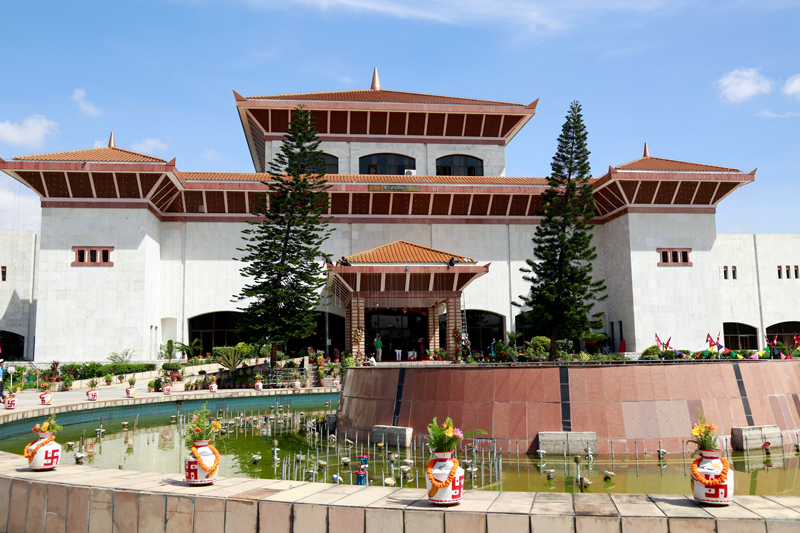Employers, employees oppose amendment made to Bonus Act
Kathmandu, January 2
Employers and employees have joined hands to oppose the government’s decision to amend the Bonus Act 1974, stating the change will disenchant workers and hit labour productivity.
The government has proposed to amend a provision in the Bonus Act, which will make it mandatory for enterprises to transfer the entire amount deposited in their welfare fund to the Social Security Fund.
The government tabled the amendment proposal in Parliament on Tuesday. If the government does not withdraw the proposal within 72 hours, it will be endorsed by Parliament.
The change was made to the Act without holding any discussion with employers’ organisations and trade unions, representatives of employers’ and employees’ organisations told a programme held in Kathmandu today.
“If the amendment made to the Act is approved by Parliament, employees will not be entitled to many financial benefits,” said Shekhar Golchha, senior vice president of the Federation of Nepalese Chambers of Commerce and Industry (FNCCI), the largest private sector umbrella body. “This will disenchant employees and reduce their productivity.”
Currently, all firms in the country have to allocate 10 per cent of profit for bonus distribution among employees. Bonus is distributed on the basis of salary scale of employees, with some workers getting up to six months of salary as bonus. Once bonus is distributed to all employees, the remaining 30 per cent is transferred to the national-level welfare fund and 70 per cent is transferred to the welfare fund established at enterprises.
If the amendment proposed by the government is approved, the 70 per cent of the bonus amount which is being deposited at the enterprise-level welfare fund will have to be transferred to the Social Security Fund.
“We used to spend money collected in welfare fund for medical treatment of employees and other purposes like marriage of our staff and education of employees’ children. The money was also used to cover the funeral cost of family members of our staff,” FNCCI Vice President Chandra Prasad Dhakal said. “If this money is transferred to state coffers, our employees won’t be allowed to enjoy these benefits, which will discourage them.”
If employees are unhappy, they will start looking for greener pastures abroad, which will intensify labour flight from the country, said Hari Bhakta Sharma, president of the Confederation of Nepalese Industries. “So, the government should drop the idea of making amendment to the Bonus Act. Instead, it can start a discourse on introducing a new Bonus Act incorporating best international practices,” Sharma said.
Binod Shrestha, president of the Joint Trade Union Coordination Centre (JTUCC), a grouping of 10 trade unions, also urged the government not to make the amendment. “We should be able to reap benefit from funds collected in our welfare funds,” Shrestha said.
Krishna Bhakta Pokhrel, chairman of the Law, Justice and Human Rights Committee of the Federal Parliament, said his panel would take up the issue and try to resolve the issue.






